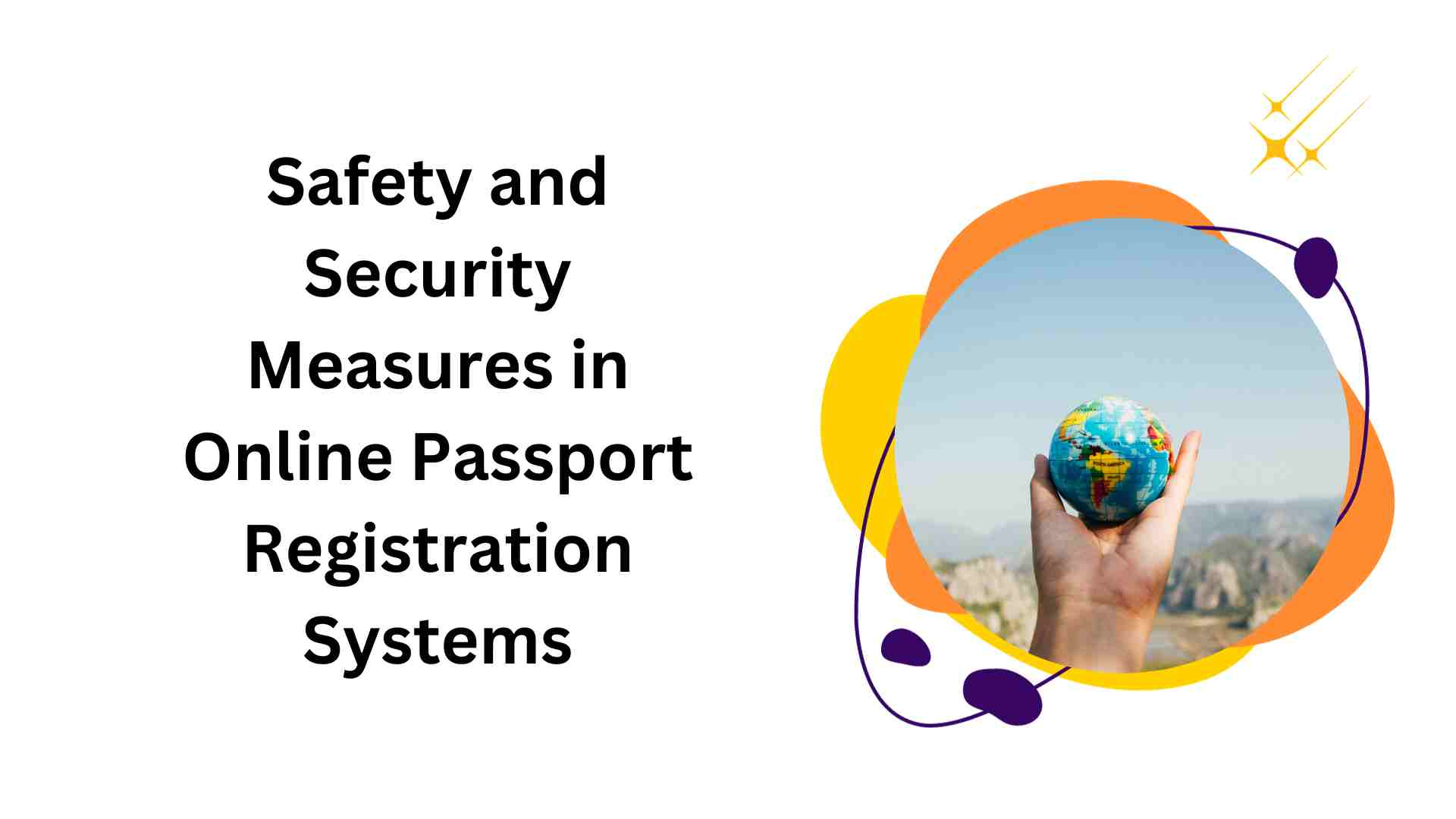
Safety and Security Measures in Online Passport Registration Systems
A passport is an official government-issued document that certifies the identity and nationality of its holder for international travel purposes. It typically contains information such as the bearer’s name, date of birth, photograph, signature, and other relevant identification details. Passport registration online also includes details about the issuing country, passport number, and expiration date.
In an increasingly digital world, the shift towards online passport registration systems has streamlined processes, offering convenience to applicants. However, ensuring robust safety and security measures within these systems is paramount to safeguard sensitive personal information and maintain the integrity of the passport issuance process.
Encryption Protocols and Secure Transmission:
Online passport registration systems implement advanced encryption protocols to protect the data transmitted between the applicant’s device and the government servers. Utilizing technologies such as SSL (Secure Sockets Layer) or TLS (Transport Layer Security) ensures that information, including personal details and documents, remains encrypted during transmission, minimizing the risk of interception or unauthorized access by malicious entities.
Multi-Factor Authentication (MFA):
To bolster security, MFA methods are often integrated into online passport registration portals. These authentication measures require multiple forms of verification, such as passwords, one-time codes sent via SMS or email, or biometric authentication (fingerprint or facial recognition). MFA adds an extra layer of security, reducing the likelihood of unauthorized access to applicant accounts.
Secure Data Storage and Access Controls:
Government entities responsible for passport registration adhere to stringent data storage practices. They employ secure servers and databases with strict access controls, limiting access to authorized personnel only. Measures like role-based access control (RBAC) ensure that employees have appropriate access privileges based on their roles, minimizing the risk of internal breaches.
Regular Security Audits and Updates:
Continuous monitoring and regular security audits are conducted within online passport registration systems. These audits assess vulnerabilities, identify potential threats, and ensure compliance with security standards. Additionally, timely software updates and patches are implemented to address any identified security loopholes and strengthen the system against emerging cyber threats.
User Education and Awareness:
Educating users about best practices in online security is crucial. Passport registration portals often provide guidelines and tips to applicants, emphasizing the importance of strong passwords, secure browsing habits, and recognizing phishing attempts or fraudulent websites. User awareness initiatives play a significant role in preventing security breaches resulting from user error or lack of awareness.
Biometric Verification and Authentication:
Online passport registration systems are increasingly integrating biometric verification methods to enhance security. Biometric data, such as facial recognition, fingerprint scans, or iris patterns, provides a highly secure means of verifying an applicant’s identity. These biometric markers, which are unique to each individual, add an additional layer of authentication, making it significantly more challenging for unauthorized access or identity theft to occur within the registration process.
Fraud Detection and Prevention:
Sophisticated fraud detection mechanisms are employed in online passport registration systems to identify and prevent fraudulent activities. Advanced algorithms analyze patterns, behaviors, and discrepancies in submitted documents or applicant information to flag potential instances of fraud. Such measures help authorities detect forged documents or suspicious activities, reducing the risk of fraudulent passport issuance.
Data Privacy and Compliance:
Compliance with stringent data privacy regulations is a top priority in online passport registration. Governments and regulatory bodies enforce strict guidelines to protect applicants’ personal information. Systems are designed to comply with data protection laws, ensuring that user data is collected, stored, and processed securely, and only used for legitimate purposes related to passport issuance.
Continuous Threat Monitoring and Incident Response:
Continuous monitoring of online passport registration systems is essential to identify and respond swiftly to potential security threats or breaches. Dedicated security teams employ real-time monitoring tools and incident response protocols to detect and mitigate any security incidents promptly. Rapid response mechanisms help minimize the impact of security breaches, ensuring the integrity of the passport registration system.
You can also reissue of passport in india
International Cooperation and Information Sharing:
Given the global nature of travel, international cooperation and information sharing play a vital role in enhancing the security of online passport registration. Governments collaborate to share best practices, intelligence on emerging threats, and information related to fraudulent activities, fostering a collective effort to strengthen security measures and combat transnational security risks.
Conclusion:
The safety and security measures integrated into online passport registration systems are a testament to the continuous efforts aimed at fortifying these systems against evolving cyber threats and fraudulent activities. Biometric authentication, fraud detection, stringent data privacy compliance, continuous monitoring, and international cooperation collectively form a robust defense mechanism, ensuring the reliability and trustworthiness of passport issuance processes conducted online. As technology advances and new threats emerge, ongoing improvements and investments in security measures will remain pivotal in maintaining the integrity and security of online passport registration systems, safeguarding personal data and fostering public confidence in these crucial government services.


